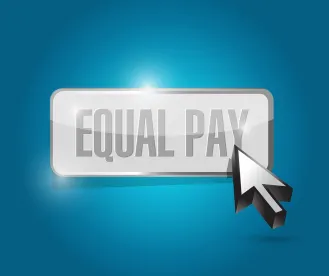The Fourth Circuit Court of Appeals issued a published opinion on March 18, 2019, that will undoubtedly become a pivotal Equal Pay Act of 1963 (EPA) case in the context of higher education.
In Spencer v. Virginia State University, the Fourth Circuit ruled that a sociology professor at Virginia State University cannot pursue a wage discrimination claim under the EPA because her job duties and responsibilities are not “virtually identical” to those of her male “comparators” in other departments of the university.
In January 2018, the Fourth Circuit decided EEOC v. Maryland Insurance Administration. In that case, the Fourth Circuit articulated a standard for dismissal of an EPA case without a trial, stating that the “burden of ultimate persuasion” is on the employer such that once an employee establishes a case of pay discrimination, the employer must prove that the pay disparity was based on a factor other than sex “so convincingly that a rational jury could not have reached a contrary conclusion.”
The court, clearly looking to take a step back from Maryland Insurance, took Spencer as an opportunity to correct course and define what a plaintiff must prove to survive summary judgment as well as what a “factor other than sex” entails.
The three-judge panel of Floyd, Wilkerson and Richardson detailed the flaws in the plaintiff’s case. The plaintiff, Zoe Spencer, relied on a comparison of her salary to those of two male professors, Michael Shackleford and Cortez Dial, outside of her department (the Department of Sociology, Social Work, and Criminal Justice). The plaintiff’s salary was at the median in relation to the salaries of male professors in her department. Her male comparators were “two of the highest-paid professors at the [u]niversity,” and both were in different departments and were formerly administrators. Further, the plaintiff did not have prior administrative experience. For those reasons, during oral argument, Judge Wilkerson called the plaintiff’s case “singularly weak.”
The plaintiff argued generally that professors perform the same generalized duties. This argument was unavailing to the court: “Spencer must provide the court with more than broad generalities to meet her burden. She must present evidence on which a jury could rely to decide that she, Shackleford, and Dial had equal jobs, not just that they all performed vaguely related tasks using nominally comparable skills.”
Spencer’s attempt to demonstrate that she did more work was also unconvincing to the court. Taking the comparator analysis a step further, the court held in a footnote, “Piling on differences—even those suggesting Spencer did better or more work—does nothing to prove equality of work.” The court stated that the EPA does not permit federal courts to sit as a “super-personnel department” to determine what market forces determine why professors in one discipline should be paid more than those in another. The court conclusively stated that the plaintiff had not adduced any evidence to demonstrate that she and her comparators performed equal work. This lack of evidence was fatal to her attempt to demonstrate a disputed material fact in order to survive summary judgment.
The court further held that even if the comparators were proper to state a prima facie case, the university proffered an unrebutted “factor other than sex” that did in fact explain the wage disparity. Virginia State University utilized a reduction in administrator salaries of nine-twelfths (or 75 percent) for all administrators transitioning to faculty positions, regardless of sex. While the plaintiff attempted to argue that the policy was erroneously applied, the court stated, “such an imprudent decision would still serve as a non-sex-based explanation for the pay disparity.”
The Fourth Circuit clearly articulated the difficulty of utilizing nonequal comparators in the context of a higher education EPA case. The Maryland Insurance case ostensibly made summary judgment less attainable by setting a more stringent standard for proving an affirmative defense. However, in Spencer, the Fourth Circuit made it a point to temper its previous analysis, stating, “The Equal Pay Act is a powerful tool, permitting an employee to prevail on a wage discrimination claim with no evidence of intentional discrimination. But this tool must be tempered by adherence to its provisions. Doing so requires that the work performed by the plaintiff and her comparators be equal and that the wage disparity not be based on a factor other than sex.”




 />i
/>i

